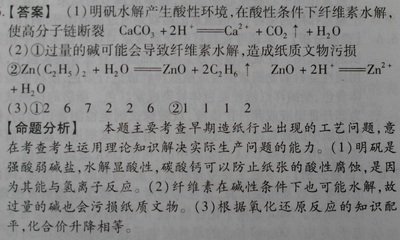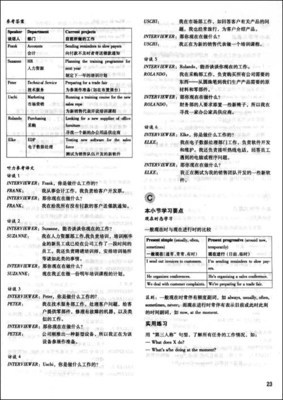http://www.eoezone.com/bbs/viewthread.php?tid=16872&extra=page=1
如何学习英语语法
1. Perspective
思考方法
The first thing to do is to put grammar into perspective. Grammaralone isn't going to help you learn a language. In order forlanguage development to take place, you need to read and listen alot. Think about children – they never sit down to learn grammar.They're exposed to lots of language and then pick it up naturally.You can do the same if you listen and read enough! In fact, themore you read and listen, the more language you'll absorb, and themore you'll see how the language fits together (which is whatgrammar is all about).
首先要正确处理语法(摆正方法)。分离开语法并不能帮助你学习语言。想要提高语言水平,必须多读多听。想想小孩子,他们从未坐下来认认真真学习语法,只是处于某种语言的环境下,就自然而然地掌握了。假如你听得够多,读得够多,你同样可以做到!事实上,听得越多读得越多,你就能越多得吸收一门语言,也就越能理解语言是成型的原理(这便是语法)。
2. Psychological
心理的
You also need to remember that grammar is largely psychological.This means that the choice of tense often depends on what you (thespeaker) want to say in a particular situation at a particular time– the choice of tense is not determined by some external “rule”.So, the selection of either will or be + going to, or must or haveto, or the Present Perfect or Past Simple, and all those othergrammar structures that are often compared, will depend mostly onwhat you want to say.
再者你还要知道,语法多为心理上的。意思是说,时态的选择是取决于某个时间某个地点你(说话者)想要说的,而非由某些外部“规则”来决定。所以,是用“will”,“be+going to”,“must”,“have to”,还是选择用过去完成时或一般过去时,基本上你说了算。
3. Freedom!
自由性
You also need to bear in mind that English is a dynamic languagethat's constantly evolving. There's no linguistic organizationregulating it (as there is for French or Spanish). So, the conceptof “right” and “wrong” doesn't really exist – it's more a questionof what is (or is not) standard English. But as there's nouniversal concept of standard English, and there are hundreds ofvarieties of the language (Australian English, British English,American English, Jamaican English, South African English... and soon), and all of them are equally valid, it all gets a bitcomplicated. In many cases it isn't a question of what's “right” or“wrong”, but what's accepted (or not) as standard in a particularpart of the world. For example, in some places, it's acceptable tosay, “He don't like it!” [sic]
你还须牢记,英语是一门不断发展的变化着的语言,没有什么语言学机构去管理调整它(法语、西班牙语却有(译者不太确定此处))。所以,“对”与“错”的观念并不真实存在。倒不如说这是一个关于什么才是(或才不是)标准英语的问题。由于对标准英语没有一个的大同概念,而这门语言又拥有成百上千的种类且都同等地被认可,这种观念变得更加复杂。很多情况下,这不是“对或错”的问题,而是看它在世界的某个特定区域是否被认为是标准。比如在有些地方说“Hedon’t like it!”是可以理解的。
4. It's easy!
这很简单!
English grammar isn't really that complicated. And there are alimited number of tenses that you need to learn (please refer toour “English Grammar Tenses” box). The rest of “English” consistsof thousands of important words and expressions (each with theirown “grammar”). If grammar is starting to sound overly complex orhard to grasp, you're probably going into too much detail. Learninghow and when to use the tenses is a lot more difficult, and this iswhere your teacher or a good grammar book can help. There are oftenuseful guidelines (albeit with a lot of exceptions) that can helpyou understand when the tenses are used. But real learning willtake place from repeated exposure to the language through readingand listening, and seeing the structures in action foryourself.
英语语法没有那么复杂。而且需要学习的时态也屈指可数。除去语法,英语只剩下上千个重要单词和词组(每一个都有自己的“语法”)。倘若语法开始听起来过于复杂或难以理解,那可能是因为你研究得太细。要学会怎样去用,何时去用时态更加困难,此时老师或者一本好的语法书就起作用了。通常会有一些有用的参考原则让你理解什么时候用哪种时态(尽管有很多特例)。但真正的学习来自读和听,反反复复去将语言展现、表露出来,通过自我练习来体会其构成。
5. Verb tables
动词表
So, what can you do to “learn” English grammar? One thing is tomemorize key verb tables. This can be done through the “look,cover, write, check” formula. Simply choose a verb table (the PastSimple, for example), look at it for a few minutes, then cover itand try to write it out again. Finally, compare your version withthe original... then do it again until you can recreate the tableperfectly. Then, choose another tense to work on. It shouldn't takelong as there really aren't that many key grammar tenses tolearn.
那么“学习”英语语法你要做些什么呢?其中一点就是记忆重要的的动词表。这些可通过“看,遮,写,检”一系列程序来完成。选一个动词表(例如一般过去时态表),看几分钟,遮起来,再试着默写一遍,最后与原表对照……接着再做几次直至能够非常吻合地复写出原表。然后换一种时态继续练习。这花不了很长时间,因为要学习的重要时态并不多。
6. Memory & repetition
记忆•重复
You also need to memorize key grammatical sentences. Listen andrepeat these back to yourself until you've learnt them by heart andyou can say them fluently. The sentences may be out of context, andthey may not be entirely natural, but that doesn't matter becausethe purpose is to internalize the basic structure, which you canthen use in the future to generate other sentences with the samestructure. For example, if you learn this sentence, “Keira lives inAmerica", you can then use it to generate hundreds of othersentences, just by replacing the subject (“Keira”), the verb(“lives”) and the complement (“in America”). For example:
a) Mike studies in Brighton.
b) Sara works in accounts.
与此同时你还要记忆一些典型的语法句子。听,然后自我复述直到铭记在心,表达自如。句子可无语境,也可不绝对地自然,这无关紧要。因为你的意图是内化它的基本结构,从而使你今后能衍生出其他同样结构的句子。例如,你学会了句子“Keiralives in America”,用它只需通过替换主语(Keira),谓语(lives)和补足语(inAmerica),你可以生成好几百个句子。如:
a) Mike studies in Brighton.
b) Sara works in accounts.
7. Drills
操练
Another thing you need to do is to build up your agility with theverb tenses. Do grammar drills on your own, with a friend or withyour teacher to develop fluency. For example, say a sentence in aparticular tense, then create the negative or question forms thatcorrespond to it: “She went to the shops. / She didn't go to theshops. / Did she go to the shops?” Keep doing this until you can doit automatically and without thinking. Then, when you're in aconversation, you'll find the tenses (and affirmative, negative orinterrogative forms) come to you much more easily.
另外,要增强对动词时态的灵活运用。做自我语法操练,或者和朋友、老师以提高流利性。举个例子,用某种时态造句,然后对应地造出一个否定句或者疑问句:“Shewent to the shops./ She didn’t go to the shops. /Did she go to theshops?”。坚持做下去直到能出口成句为止。这样,对话时便能轻而易举地使用时态了(肯定的,否定的或疑问的)。
To summarize: read and listen a lot, learn the verb tables,memorize key grammatical sentences, practice forming negatives andquestion forms and, above all, remember that language is all aboutcommunication – it isn't a set of rules!
总结:多读多听,学习动词表,记忆典型语法例句,练习组成否定、疑问句式,以及最重要的,要记住语言是交流之物——而不是一系列规则!
 爱华网
爱华网


